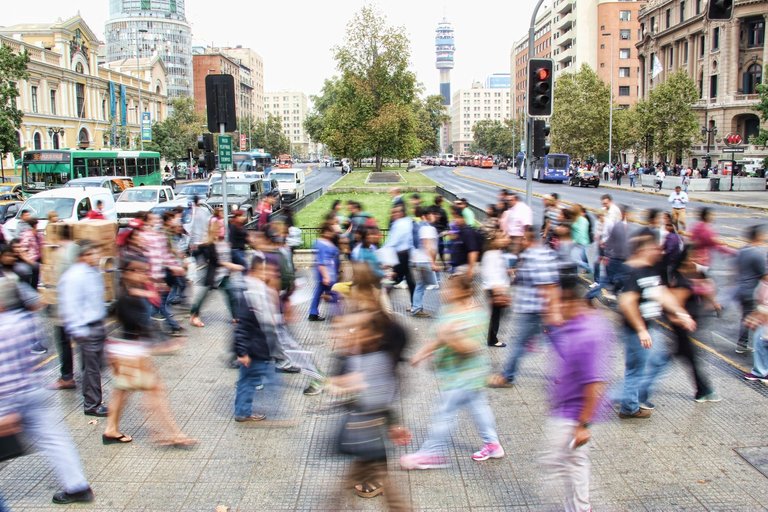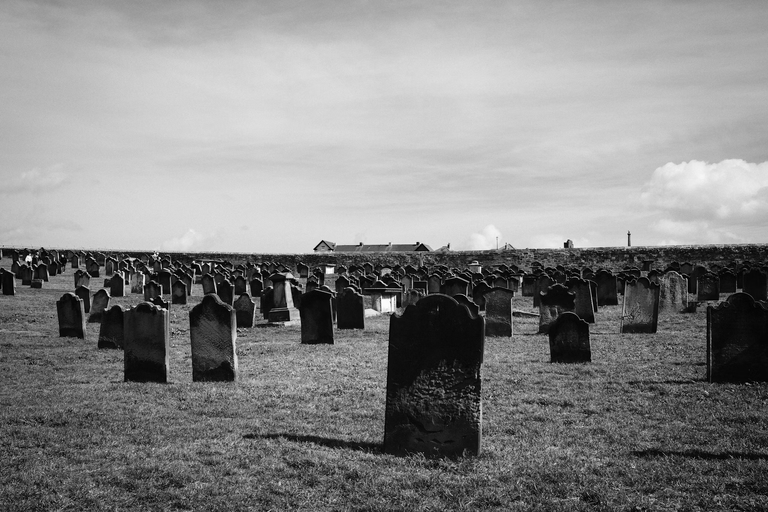[EN/PT-BR] My opinion on the rehabilitation of criminals.
 Unsplash
Unsplash
If there is a subject that tends to be very controversial in Brazil, it is the rehabilitation of criminals, whatever the crime committed. I think a lot of people feel like the money spent on this is money wasted, because we have a culture that if someone makes a mistake once, they're likely to make a mistake again and so it just keeps the cycle of crimes and criminal acts occurring.
My opinion is that perhaps it depends on the crime that was committed. For example, we can talk about rehabilitating, if necessary, a person who stole milk or bread because their children were hungry. Damn, it's a complex situation, you steal so your children don't go hungry, a crime is a crime and I support that, that the rules and laws must be respected. But, in a case like this, it's difficult to imagine how the penalty would be applied to a person who did this, which leads me to believe that perhaps talking to or training that person for the job market is the best thing to do.
Now, if we think about a murderer, rapist, homicide, fraudster, drug dealer and countless other serious crimes or that the person knows they are doing something because they want to harm other people, in my humble opinion it is much more difficult to rehabilitate themselves. in society. Here in Brazil, I think the efficiency of this rehabilitation is almost null, as every day we see a lot of news about criminals who had the money to get out of prison and instead of trying to start something new and good, they simply commit the same crime, that is, repeating their own mistakes.
 Unsplash
UnsplashWhen this news comes so frequently in a country like ours, it becomes difficult to believe that something will actually work. Perhaps as said, small crimes, if analyzed calmly, can give a person a second chance, but these heavy and heinous crimes make it practically impossible for people to readapt into society. Many commit their crimes and are imprisoned for some time in police stations or prisons, but there is a process called “custody hearing” that releases these people who commit crimes rather than imprisoning them.
The custody hearing is the moment in which a person who has been arrested in the act is presented and heard by a judge, with the participation of the Public Prosecutor's Office and the Public Defender's Office or a lawyer, which will analyze the legality of the arrest and also whether the person should be granted freedom or whether they should remain in preventive detention. Any occurrences of torture or ill-treatment by those who carried out the arrest in the act are also analyzed. In this act, the defense thesis is not discussed.
defensoriapublica
In my opinion, it's complicated when you realize, for example, that the government's spending on prisoners (the spending stipulated per head, per person) is greater than the spending made for each child in a school, or that the investment in each doctor and nurse in a public hospital is less than the same amount spent on a prisoner. Many times in friendship circles we even joke that things are so difficult that it is better to be arrested, because you will have a place to live and food that is often better than our daily routine. It's a joke, but it borders on reality.
 Unsplash
UnsplashHere we have examples of people who killed their mother or father, and on Mother's and Father's Day, they simply get the right to leave prison to visit their parents (who are already dead) and we are left with the feeling of impunity and Doom with the laws, after all, if the individual killed his own mother, why does he have the right to go out to visit his mother? What will he do? Cry in the grave? Ask for forgiveness? To me that doesn't make sense.
Finally, I believe that the best investment to make is in education, quality of life and job creation, I believe that all of this causes the crime wave and people's marginalization to decrease. Another point that I am completely in favor of is the death penalty, which unfortunately we do not have in Brazil and I think it is past time to have it. There are crimes that destroy lives and families and the criminal is seen as a victim of society. This is disgusting to me and I believe that with the death penalty, every potential criminal would think twice before committing any crime.

 Unsplash
Unsplash
Se têm um assunto que costuma ser bem polemico no Brasil, é sobre a reabilitação de criminosos, seja lá qual for o delito cometido. Acredito que muitas pessoas sentem que o dinheiro gasto nisso é um dinheiro jogado fora, porque temos uma cultura de que alguém errou uma vez, provavelmente ele errará novamente e assim apenas irá manter o ciclo de crimes e atos criminosos ocorridos.
A minha opinião é que talvez dependa do crime que foi cometido. Por exemplo, podemos falar em reabilitar, caso seja necessário, uma pessoa que roubou um leite ou um pão porque seus filhos estavam com fome. Caramba, é uma situação complexa, você roubar para seus filhos não passarem fome, crime é crime e isso apoio, que as regras e leis devem ser respeitadas. Mas, e em um caso assim, complicado de imaginar como seria a aplicação da pena em uma pessoa que fez isso, o que me leva a crer que talvez conversar ou capacitar essa pessoa para o mercado de trabalho seja o melhor a se fazer.
Agora, se pensarmos em um assassino, estuprador, homicida, fraudador, traficante de drogas e em inúmeros outros crimes pesados ou que a pessoa sabe que está fazendo algo por que quer prejudicar outras pessoas, na minha humilde opinião é muito mais difícil de se reabilitarem na sociedade. Aqui no Brasil acho que a eficiência dessa reabilitação é quase nula, pois vemos todos os dias muitas noticiais de bandidos que tiveram o dinheiro de sair da prisão e no lugar de tentarem começar algo novo e bom, simplesmente fazem o mesmo crime, ou seja, reincidentes em seus próprios erros.
 Unsplash
UnsplashQuando essas notícias vêm com tanta frequência em um país como o nosso, fica complicado acreditar que algo vai realmente funcionar. Talvez como dito, os pequenos delitos, se analisados com calma, possam sim dar uma segunda chance para a pessoa, mas estes crimes pesados e hediondos é praticamente impossível que as pessoas se readaptem na sociedade. Muitos cometem seus crimes e ficam presos por algum tempo nas delegacias ou presídios, mas existe um processo chamado “audiência de custódia” que mais solta do que deixa preso essas pessoas que cometerem crimes.
A audiência de custódia é o momento em que uma pessoa que foi presa em flagrante é apresentada e ouvida por um juiz ou juíza, com a participação do Ministério Público e da Defensoria ou de um(a) advogado(a), que irá analisar a legalidade da prisão e também se deve ser concedida a liberdade a essa pessoa ou se ela deve seguir presa de forma preventiva. Também são analisadas eventuais ocorrências de tortura ou de maus-tratos por parte de quem realizou a prisão em flagrante. Neste ato, não se discute a tese de defesa.
defensoriapublica
Na minha opinião, é complicado quando você percebe, por exemplo, que o gasto do governo com os presos (o gasto estipulado por cabeça, por pessoa) é maior do que o gasto feito para cada criança de uma escola, ou que o investimento em cada médico e enfermeiro de um hospital publico seja menor do que este mesmo valor gasto com um preso. Muitas vezes nas rodas de amizades até brincamos que as coisas estão tão difíceis que é melhor ser preso, porque você terá um lugar para morar e alimentação muitas vezes melhor do que a nossa própria da rotina dos dias. É uma piada, mas beira a realidade.
 Unsplash
UnsplashAqui temos exemplos de pessoas que mataram a mãe ou o pai, e no dia das mães e pais, elas simplesmente conseguem o direito de sair do presídio para visitar os seus pais (que já estão mortos) e nos ficamos com a sensação de impunidade e perdição com as leis, afinal, se o individuo matou a própria mãe, por que ele tem o direito de sair para visitar a mãe? Ele fará o quê? Chorar no tumulo? Pedir perdão? Para mim não faz sentido isso.
Por fim, acredito que o melhor investimento a se fazer é em educação, qualidade de vida e geração de empregos, acredito que tudo isso faz com que a onda de crimes e a marginalização das pessoas diminuam. Outro ponto que sou totalmente a favor é a pena de morte, que infelizmente não temos no Brasil e acho que já passou da hora de ter. Existem crimes que destroem vidas e famílias e o criminoso visto como vítima da sociedade. Isso é nojento para mim e acredito que com a pena de morte, todo potencial criminoso iria pensar duas vezes antes de cometer qualquer crime.


🔹Hive Games: Splinterlands | dCrops | Terracore | Holozing🔹
🔹Play and Mine Crypto: Rollercoin | Follow me on X🔹
Posted Using InLeo Alpha
!hiqvote
Obrigado por promover a comunidade Hive-BR em suas postagens.
Vamos seguir fortalecendo a Hive
@shiftrox, the HiQ Smart Bot has recognized your request (1/2) and will start the voting trail.
In addition, @shiftrox gets !COFFEE from @hiq.redaktion.
For further questions, check out https://hiq-hive.com or join our Discord. And don't forget to vote HiQs fucking Witness! 😻
Invest more in education, if that is an idea that I have also come to believe could reduce crime, if we could instill very strong values in people, through the process of education.
The personality is consolidated around the age of seven; after that, it is difficult to make changes in the personality framework of the subjects.
That is why the formation of the first years of education in children is so important; a good guide is needed to achieve a better future.
I totally agree with what you've written, it's simple, it's education, passing on the values that crime doesn't pay, it only destroys your life and your family. The rulers also have to invest in jobs and opportunities for people, but then it's more complicated, after all most of them are corrupt and only think about their pockets.
It's a very hard topic to deal with, because essentially, when someone commits a crime, we could check the ambience and context that let them to that behavior. Every cade is different, but a main point in most of them is that State lost control over the responsibility of forming good citizens, and under this argument, it's unfair to be treated with no rights by the authority, when your conditions of life were so poor. Security politicies should be preventive too, not just corrective.